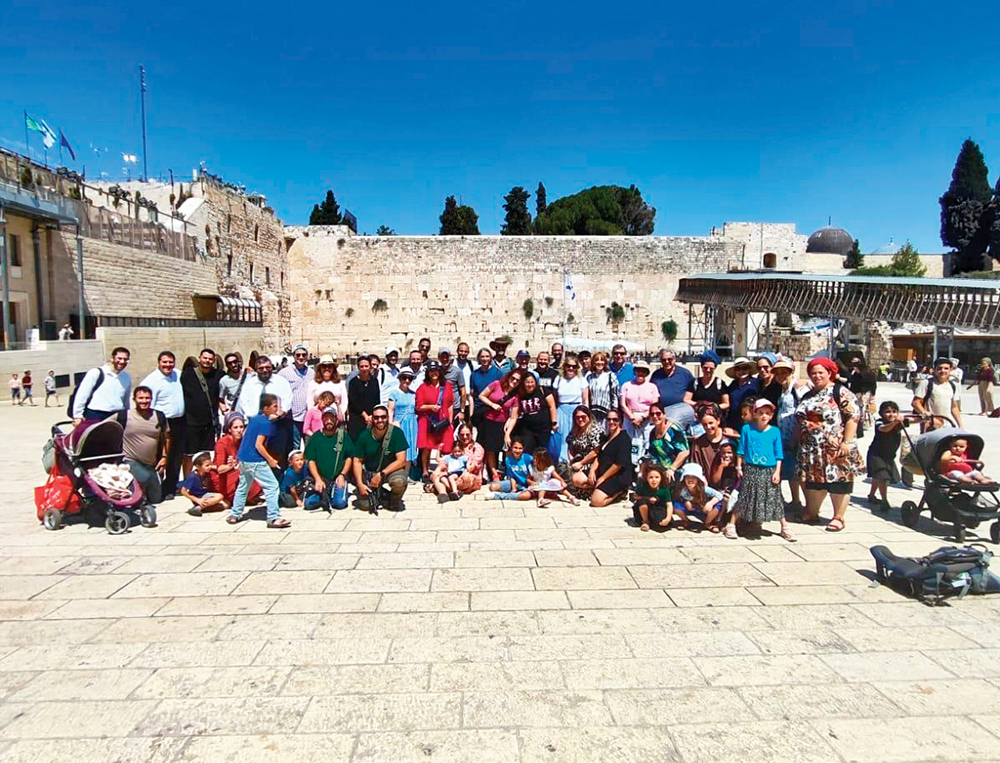
Our second communal mission to Kerem Shalom began under the ominous threat of an Iranian retaliatory strike, in conjunction with that of Hezbollah, for the targeted assassinations of arch-terrorists and mass murderers, Ismail Haniyeh and Fuad Shukr. Even when leaving the plane, the flight attendants from El Al, in place of the usual, “Have a nice trip,” or “Welcome to Israel,” simply looked at me and said, “Be safe.”
It was an honor, especially under the circumstances, to be joined by my dear colleagues Rabbis Elliot Schrier of Congregation Bnai Yeshurun, and, for the second time, Rabbi Daniel Feldman of Congregation Ohr Saadya. All of those who journeyed with us should truly be commended for their tenacious support of our brothers and sisters in Israel during this time of war for the survival of the Jewish people.
Our ongoing partnership with Rav Yosef Zvi Rimon, shlita, and his wonderful organization, Sulamot, as well as Rav Doron Perez and Mizrachi, has enabled the relationship between Teaneck and Kerem Shalom to continue to prosper. In addition to the $400,000 we were able to raise for the general evacuees of the Otef communities in December, we are now $300,000 into a $1 million campaign to restore Kerem Shalom.
As the Jewish community closest to Gaza, a mere 40 meters from Rafah, it is literally the front line in the war. Artillery shelling could be heard throughout our time in Kerem Shalom. And yet, we recognize that those who came to destroy Kerem Shalom and massacre Jews on October 7 would have been only too happy to come to Teaneck, but Kerem Shalom was closer. We know our halachic and moral responsibility to ensure that Kerem Shalom is once again a thriving Jewish community, where many different kinds of Jews live together in absolute harmony and mutual love.
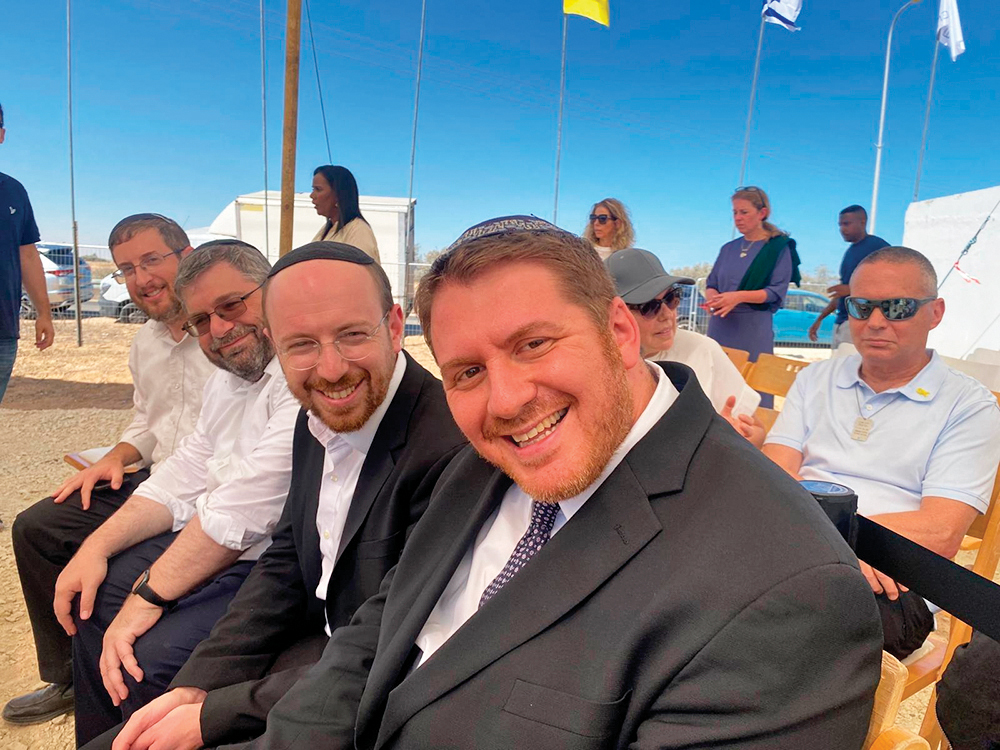
Last week, we read perhaps the most difficult Haftarah of the entire year, reserved for the Shabbat prior to Tisha B’Av: Chazon Yeshayahu, a vision of Yeshayahu HaNavi, of the Jewish people, the descendants of Avraham, Yitzchak and Yaakov, collapsing into the moral abyss, to the levels of Sodom and Amorah.
And, chief amongst their sins, is that they have failed to take care of the widows and orphans amongst them, “יתום לא ישפוטו וריב אלמנה לא יבוא אליהם—”The do not judge the case of the orphan, And the widow’s cause never reaches them.”
On Simchat Torah in Kerem Shalom, Amichai Weitzen and Yedidya Raziel willingly gave their lives to save their dear friends, Amichai and Avital Schindler and their six beautiful children, when their home was invaded by terrorists. When Avital Schindler called Eliyah ben Shimol, the commander of the security team, to let them know that the terrorists were in the home, Amichai and Yedidya didn’t hesitate. And they both fell, caught between the crossfire of terrorists who were firing at them from every direction.
On the very spot where these kedoshim returned their souls to their creator, we made a siyum on Seder Kodashim, which had been jointly learned in memory of Amichai and Yedidya by eleven shuls across Bergen County: Ahavat Achim, Beth Aaron, Beth Tefilah of Paramus, Bnai Yeshurun, Chabad of Teaneck, Jewish Center of Teaneck, Kesher, Netivot Shalom, Ohr Saadya, Young Israel of Fort Lee, Young Israel of Teaneck. It was an honor to be joined by Amichai’s wife, Talya, as well as his parents.
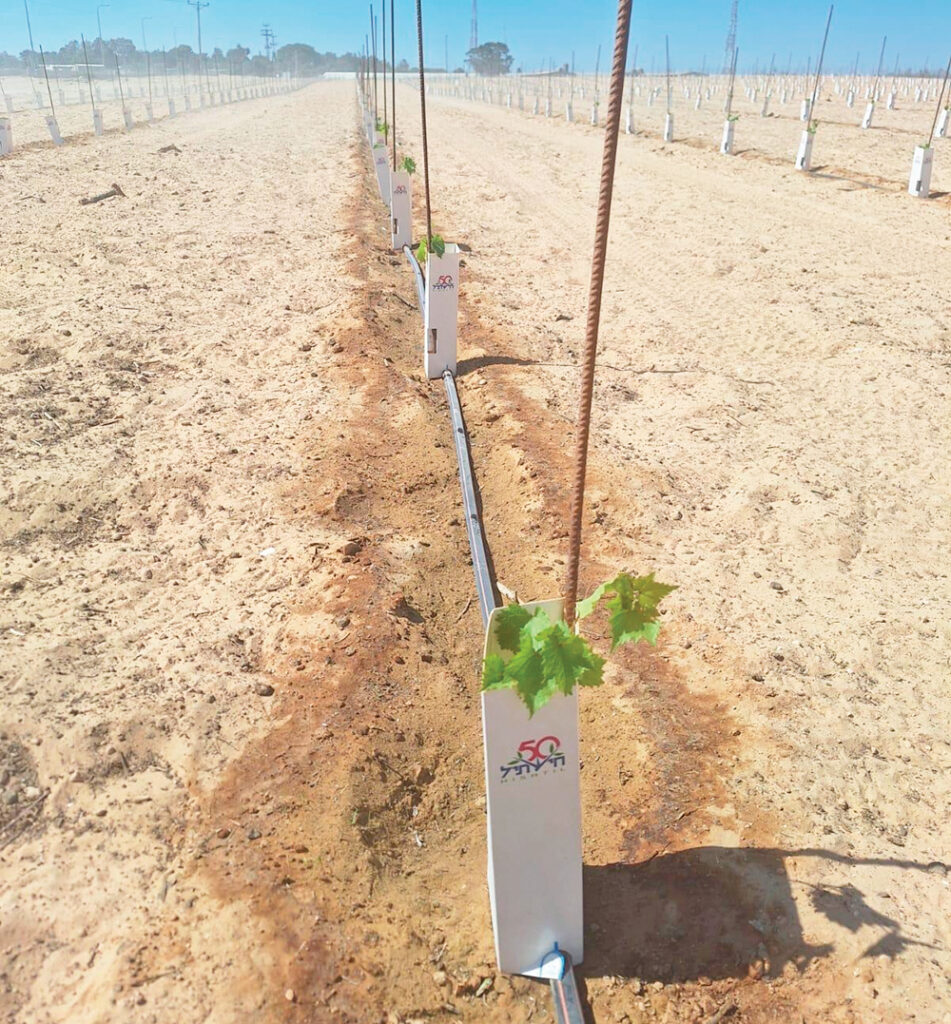
The sanctity of that particular spot is drawn from the days of the return from Babylonia of a fraction of the Jewish people during the days of Ezra. While the sanctity of Yehoshua bin Nun, achieved through conquest, was reversed by destruction, the sanctity of Ezra is everlasting. When the Jews, despite losing everything, showed that they were prepared to return to the Land of Israel, this created a new sanctity that could never be removed from the Land.As such, Talya’s desire to return to the very place where her beloved husband was killed, with her five fatherless children, is no less remarkable than the resilience which was demonstrated in the days of Ezra.
No one could blame Talya or any of the residents of Kerem Shalom if they did not wish to return to the site of such deep trauma. And yet, like the Jews of the days of Ezra, they cannot be held back from their Land.
A few hours earlier, we had all gathered at the new vineyard we planted in Kerem Shalom. This had been one of Amichai’s dreams, “kerem B’Kerem.” The ceremony was attended by many, including President Herzog, former Defense Minister Gantz and his entire party. Most significantly, Talya addressed the group, noting how amidst all of the pain and suffering, her resolve to continue her husband’s legacy was unbroken, “הזרעים בדמעה, ברינה יקצורו— Those who plant in tears will reap in joy.” The children of Kerem Shalom rose to sing a song of hope for their future.
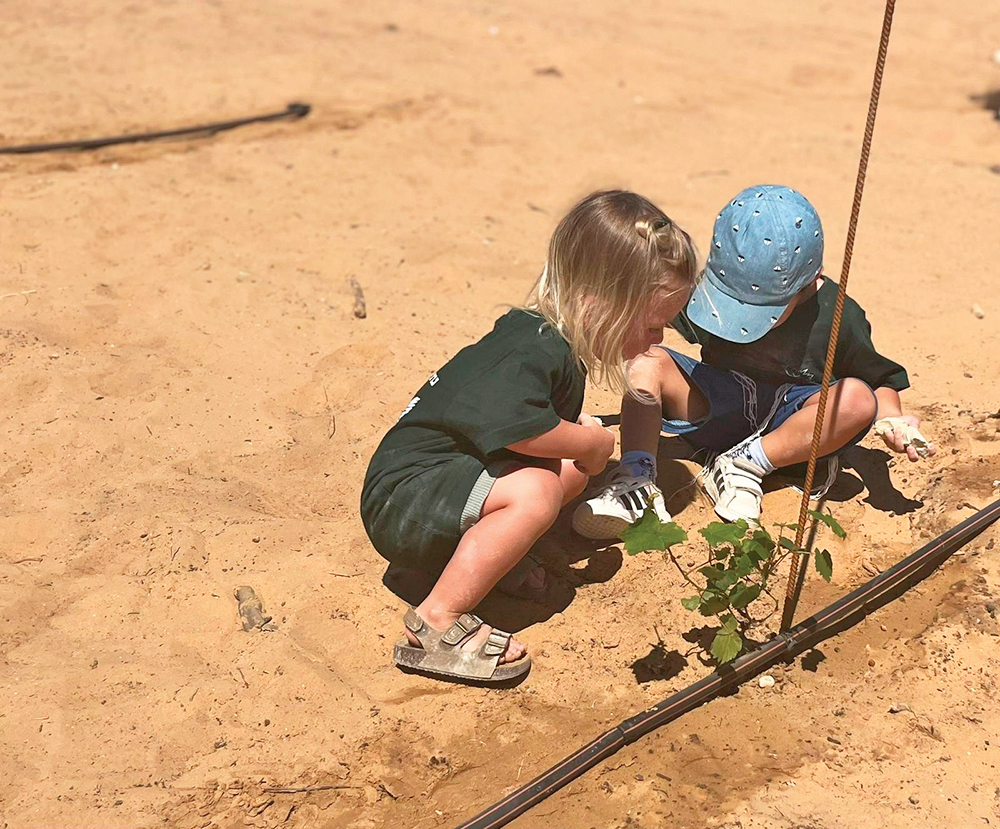
That evening, this time in the middle of the Negev desert, in Ashalim, where the beautiful people of Kerem Shalom have been evacuated to dormitories these last many months, we made a second siyum, this one led by the children of Kerem Shalom, Tzuri Raziel and Tzur David Weitzen, Yedidya and Amichai’s sons, on Seder Zeraim.
Shira Raziel, the widow of Yedidya, spoke to us in fluent English about how she sees the Jews of Bergen County rising to this historic moment on behalf of our brothers and sisters in Israel. She spoke of her childhood during which her parents brought her on shlichut to Los Angeles, where she developed an appreciation of the love and devotion of the Diaspora community for their brothers and sisters in Israel.
The next day, as we all moved through the tunnels of Ir David together—Jews from Bergen County with the Jews of Kerem Shalom— I saw one of the most beautiful sights I will ever see. At the end of Chizkiyahu’s water tunnel, I looked on as a few of the children of Kerem Shalom played in the gathered water. Tzur David Weitzen and his brother Kerem and Tzuri Raziel, three boys without their fathers; two sons of Amichai Schindler, whose father was so terribly wounded on Simchat Torah; Ziv Wizner, whose father Yair was with us here in Teaneck a few months ago and is still recovering from the RPG attack he suffered while killing the terrorists who sought to destroy Kerem Shalom. These boys played and splashed and smiled with each other. There were only smiles on their faces, and not a tear in their eyes.
I could not be prouder of this kehillah. Unlike Yeshayahu, who had the sad responsibility of rebuking those who had abandoned the widows and orphans of Am Yisrael, I have a much happier lot: to praise those who have supported, and will continue to support, the widows and orphans, the displaced and the injured, until the Jewish people emerge victorious from this great battle for our survival.
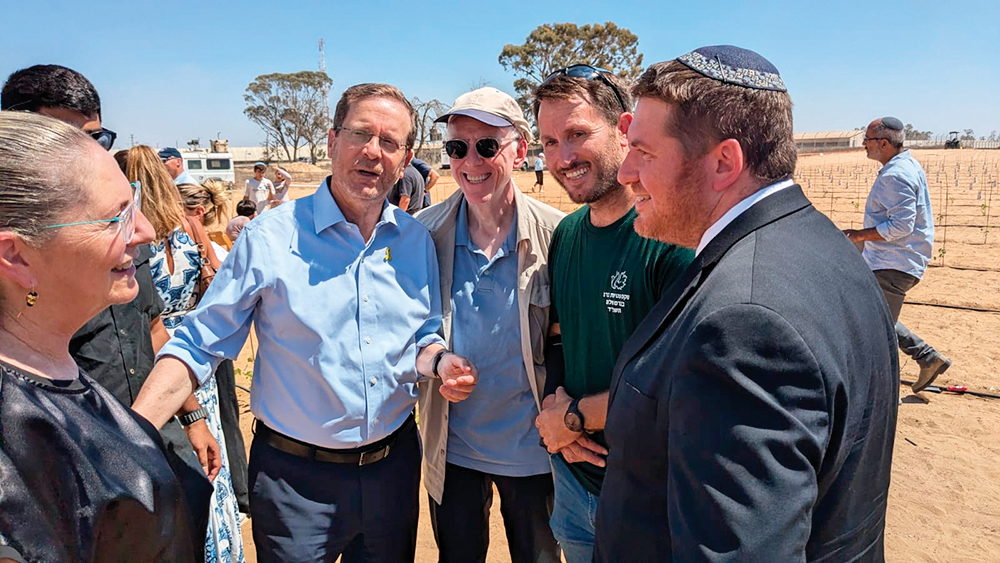
Our tzedaka ensures that Kerem Shalom will not, God forbid, remain judenrein,
and provide the Nazis of Hamas with a victory. These acts of righteousness are the very source of our redemption, ציון במשפט תפדה ושביה בצדקה. (“Zion shall be redeemed through justice, and her penitent ones through righteousness.”)
May our partnership with Kerem Shalom continue to flourish like the new vines planted this week. We look forward to, God willing, returning to Kerem Shalom in November during Thanksgiving weekend. For inquiries regarding supporting Kerem Shalom, as well as information regarding the November mission, please contact me at [email protected].
Rabbi Daniel Fridman is the rabbi of the Jewish Center of Teaneck and vice president for Community Relations, RCBC.












